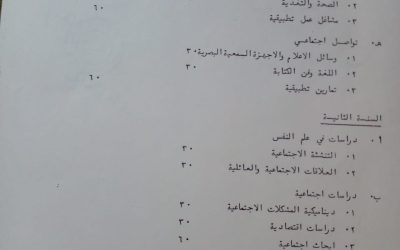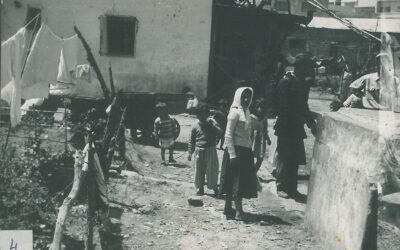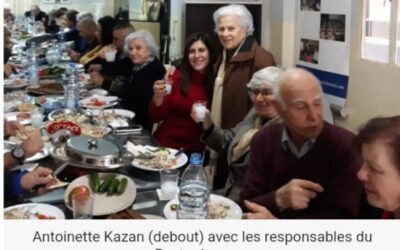At the end, it is necessary to pay a respectful tribute to the memory of Jesuit Father Nicolas Kluiters whose experience as a social worker continued until he passed away. He obtained his social work certificate in 1970 from the “Ecole Libanaise de Formation Sociale-Université Saint-Joseph”.
This Dutch Father came to Lebanon in 1966 (Dagher, Carole, 2013), learned Arabic, and took lessons in Arabic literature, interpretation of the Koran, Sufism, and Islam. His keen interest in the lives of the poor and his yearning for social justice led him to enter the field of social work. As he said, according to those who were close to him: “kindheartedness is not enough; social work is a profession, gained by learning”. In the summer of 1974, he was appointed to Taanayel and chose to practice in the areas of Hermel, Deir Al-Ahmar, and Hadath Baalbeck villages, which were mixed and the most deprived, as he used to say.
He left Lebanon in 1975 and returned to it at the beginning of 1976 fall with full awareness of the dangers that he might face. He settled in “Barqa”, a village that was known for its family and tribal divisions, and took it upon himself to practice his socio-pastoral work in neighboring villages.
After his return, Father Kluiters started to finalize the projects he initiated before leaving, trying to bring life back to the region which was exhausted by the early years of war. He discovered the tribal customs, political and family divisions, inherited grudges, and acts of revenge; hence, he launched activities that correspond to this reality. His main concern was to keep the population in their villages and seek peace between tribes and religions, so he decided to declare war on war in his way; external war and internal war, as one of his acquaintances said.
He assisted in building agricultural roads, and water canals, purchased the necessary tools for agriculture, contributed to the construction of schools and dispensaries, provided conference and meeting rooms, improved roads, and ensured better living conditions, as far as possible, in difficult security and living circumstances. Moreover, he established a sewing workshop for women that still exists today. All those initiatives and projects gradually changed the conditions of many families. He launched projects, sought funding sources, and urged the entire population to participate actively in these projects. He was particularly interested in highlighting collective success stories and always sought reconciliation among adversaries and putting an end to war between families and tribes.
He opposed the division of the country in his way and believed in interfaith communication and coexistence, and his main concern was to assist people in helping themselves; of course, besides all this, he was performing his pastoral work in the northern Bekaa region as a Jesuit priest, as well as a social worker.
Father Kluiters was open-minded, affectionate, humble, and could observe, in addition to his methodical and meticulous nature, seriousness, moral rigor, courage, and his ability to be in harmony with all situations. He always kept saying: “We must move forward; love is stronger than hatred…”
He continued his humanitarian and professional commitment to the region where he chose to be, with determination and persistence. The socio-economic, medical, and educational development remained his priority. He achieved in five years what others could only achieve in double that time, until he was kidnapped on March 13, 1985. His body was found mutilated on April 1, and he was buried in “Taanayel”.
As someone said: “This stranger watered the land under the feet of the cedars of Lebanon with his blood, after helping to water it with spring water. He formulated his wish: “To be the fertilizer of the fertile and neglected land of the northern Bekaa.”
“Today on this land, all kinds of fruits grow, especially work, hope, and love flourish. In this place that he brought out of oblivion, far away, this Jesuit father’s name is associated with fruit trees, the running water in the orchards, the church choir, and the laughter of the children in the school playground.” (Dagher, Carole, 2013).
Social workers faced significant challenges at that stage, and social workers had to show persistence, determination, and hope. We have mentioned a few initiatives and experiences, and many of them still need to be considered and highlighted.




